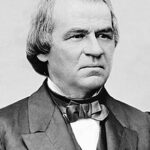The Historic Decision
President Andrew Johnson inherited Abraham Lincoln’s vision for Reconstruction when he assumed office in April 1865. The Freedmen’s Bureau, officially known as the Bureau of Refugees, Freedmen, and Abandoned Lands, became operational on March 3, 1865. Johnson initially supported this groundbreaking federal agency during his early presidency. The bureau represented the government’s first major welfare program in American history.
Comprehensive Aid Programs
The Freedmen’s Bureau provided essential services to over 4 million newly freed slaves across the South 📊. The agency distributed food rations to prevent starvation among displaced populations. Medical care reached remote areas where healthcare was previously unavailable. Housing assistance helped families establish stable homes after emancipation. Legal aid protected former slaves from exploitative contracts and unfair treatment.
Educational Revolution
The bureau’s educational mission proved most transformative for American society 📚. It established over 3,000 schools across former Confederate states. These institutions served both children and adults seeking literacy. The agency trained teachers and provided educational materials. Many historically black colleges and universities trace their origins to Freedmen’s Bureau initiatives. This educational foundation created opportunities for generations of African American families.
Impact:
Immediate Social Transformation
The Freedmen’s Bureau created immediate positive changes across the reconstructed South 🌟. Over 200,000 former slaves learned to read and write within five years. The agency distributed 21 million food rations, preventing widespread famine. Medical services reduced mortality rates among vulnerable populations significantly. These programs demonstrated the federal government’s capacity for large-scale humanitarian intervention.
Long-term Educational Legacy
The bureau’s educational initiatives produced lasting benefits for American society 📈. Schools established during this period continued operating long after federal support ended. Many became foundations for permanent educational institutions in African American communities. The literacy programs enabled political participation among newly enfranchised citizens. Educational opportunities created pathways to economic advancement and professional careers.
Economic and Political Consequences
Johnson’s initial support for the Freedmen’s Bureau helped stabilize the post-war economy 💰. The agency’s work programs provided employment for thousands of displaced workers. Agricultural assistance programs restored Southern food production capacity. However, political tensions eventually led Johnson to oppose bureau expansion ⚠️. This shift damaged his relationship with Radical Republicans and complicated Reconstruction efforts. Despite later conflicts, the bureau’s early achievements under Johnson’s support created foundations for civil rights progress.
